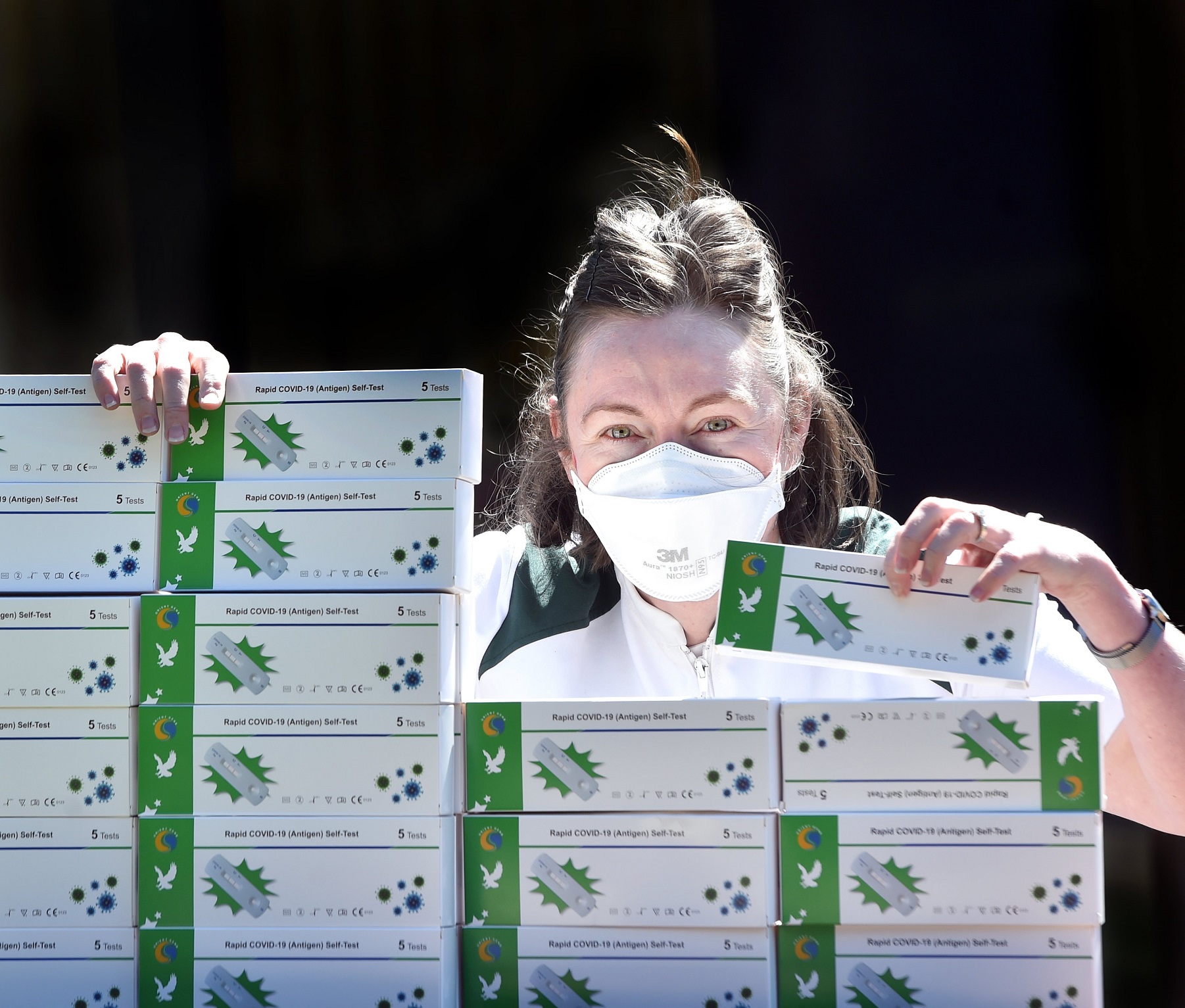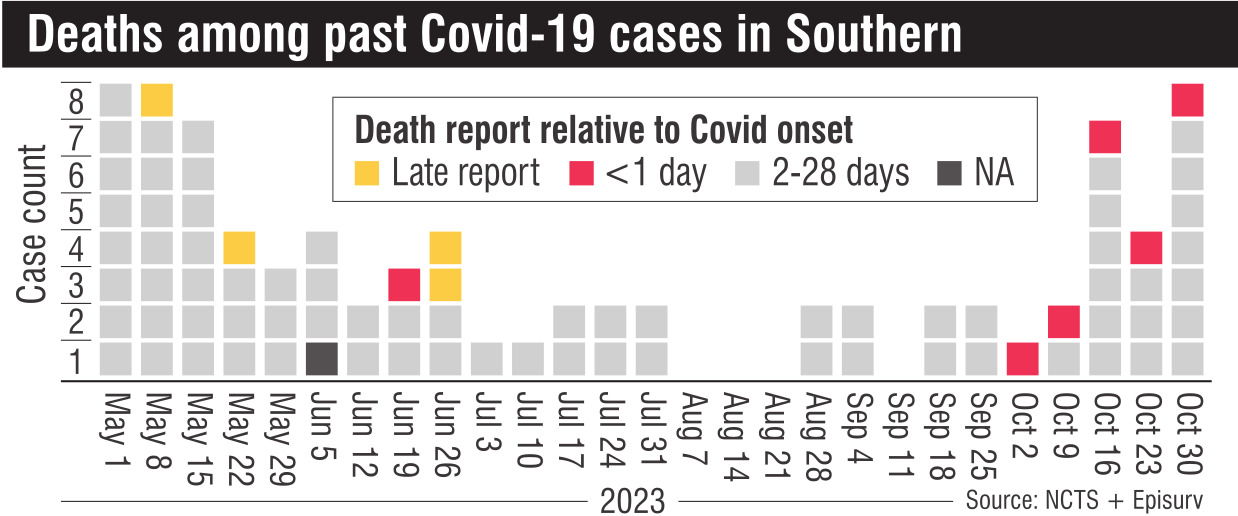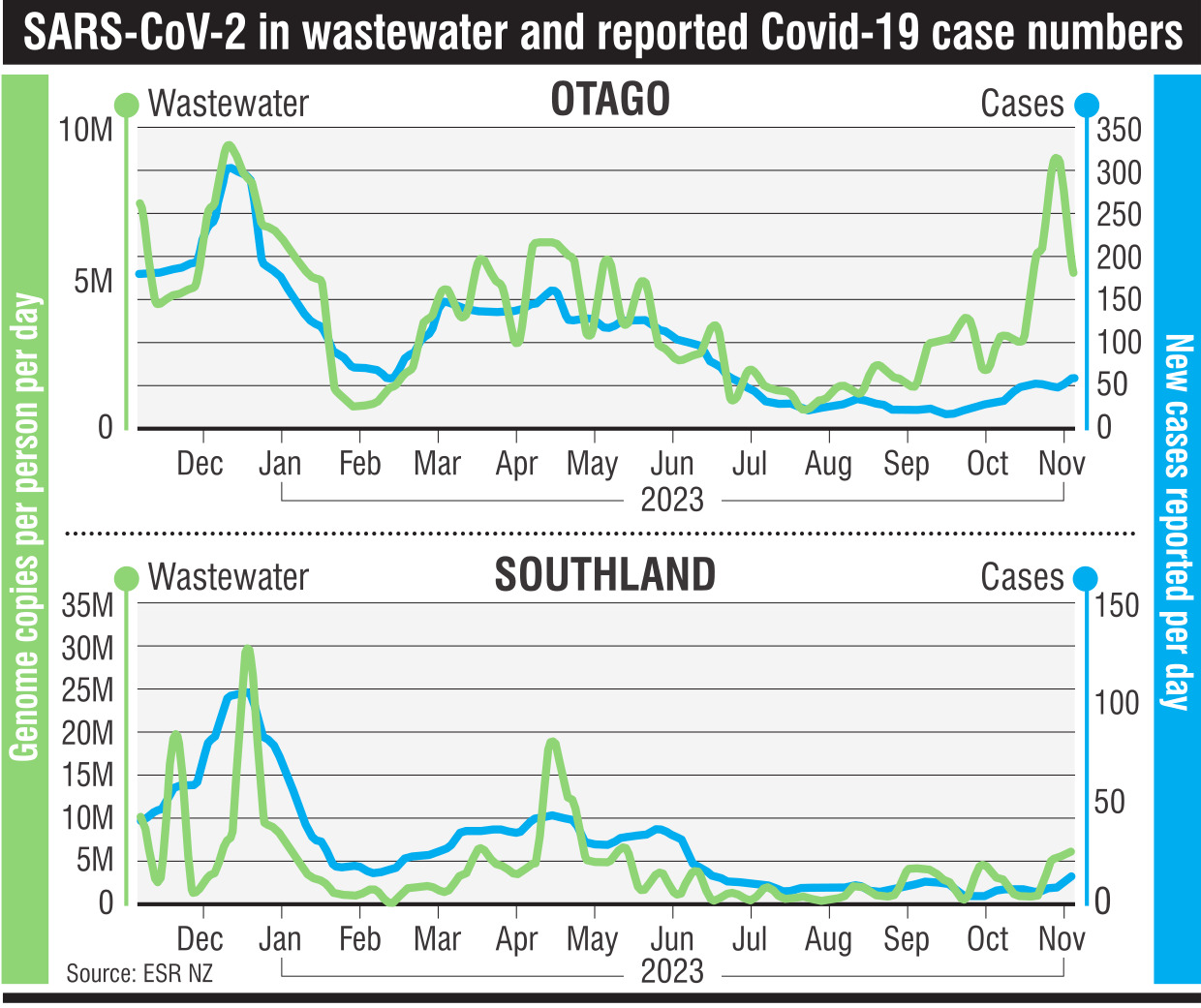
A social media post from WellSouth Primary Health Network said the disease was increasing in Otago and Southland.
"A recent spike in Covid-19 deaths is a good reminder that it is still in our community and still poses a threat to our older whānau and loved ones who have compromised immune systems," the post said.
"From mid-July to mid-October, there was about one death a week from Covid-19, but in the last three weeks, we have sadly averaged six deaths a week, recording 19 deaths in total across Otago and Southland."
In the past week, there have been 570 cases of Covid-19 reported in the Southern region, compared with 198 in the week up to September 25.
University of Otago epidemiologist Prof Dr Michael Baker said there was "definitely" a fifth wave of Covid-19 making its way through the community.
"We’re at the highest level of hospitalisations for six months, about 300 per week across the country, and there are about 25 deaths per week attributed to Covid-19," Prof Baker said.
"People don’t want to go to hospital, and no-one wants to admit people unless they’re quite sick."
There had also been a major spike in Covid-19 detected in the wastewater, Prof Baker said.
"We’re seeing a decline in reported Rat testing results, especially since the removal of mandatory self-isolation and the axing of the Covid-19 leave support scheme on August 15.
"People are not reporting their results as much, so wastewater testing has become the best indicator we’ve got."

And other regions were expected to follow.
"We’re very much having our fifth wave of Covid.
"Covid-19 is now an endemic infection that we’re co-existing with, but it’s a dynamic situation."
Immunity waned with time, and there were new sub-variants emerging that were better at escaping this immunity, he said.
"It’s natural selection in operation, but there is no single sub-variant that is dominant — unlike last year.
"There is no sitting still with this virus."
Prof Baker warned against complacency.
"The fact that half of people over 50 have not had their second booster shot suggests people are less worried about the virus, and that’s a big mistake.
"This virus will kill about 1000 people this year and probably put 10,000 people in hospital."
There were also the risks associated with long Covid, Prof Baker said.

"It’s really undesirable to get infected and reinfected with this virus."
Pharmacist Leigh Ribeiro, of Roslyn Pharmacy, said there had been a significant increase in requests for Rat test kits and anti-viral packs in the past few weeks.
"We’re seeing it affect all facets of the community, but particularly rest homes, institutions and hostels," Ms Ribeiro said.
The government removed the last of the Covid-19 restrictions on August 15 — meaning mandatory seven-day isolation and wearing a mask when visiting a healthcare or aged-care facility were no longer required by law.
However, Ms Ribeiro said people should still wear masks if they felt they were in a vulnerable situation.
Prof Baker urged people to stay home when feeling sick.
"No-one wants to get infected," he said.
Before Christmas, Prof Baker urged people to consider hosting events in well-ventilated areas, or covered outdoor spots.
The booster shot for people aged over 30 years old remained free, as did Rats kits, Prof Baker said.












